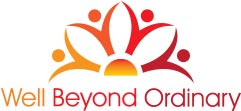 An oncology nurse reviewed my blog post, The Language of Cancer. We felt that addressing this topic up front at the start of your journey for our readers would be beneficial. One of the goals of coaching is to reduce stress so knowing that certain words or phrases can be “hot buttons” for people, we decided to explore this as part of laying the foundation of this journey of transformation.
An oncology nurse reviewed my blog post, The Language of Cancer. We felt that addressing this topic up front at the start of your journey for our readers would be beneficial. One of the goals of coaching is to reduce stress so knowing that certain words or phrases can be “hot buttons” for people, we decided to explore this as part of laying the foundation of this journey of transformation.
What one takeaway stood out most to you in that blog post you feel your clients could most benefit from? What about it do you feel could be beneficial?
I truly enjoyed your written piece regarding language and the importance the written word, along with the limitations it has. We all come from different points of views. This can have an impact on how we interpret what is being said, but just as you pointed out there is typically no malice intended in the words spoken. It’s just that we each have our own perspective of what they mean. What human beings most desire is to be able to convey our thoughts, feelings, and needs appropriately in a way we are heard.
As a healthcare practitioner, what role do you feel language plays in the patient experience?
It plays a very significant role. Language is the primary way we communicate with one another. For a health care provider, this is vital as we are both providing very important information to our clients as well as listening to them to learn more about what they are experiencing. I want to make sure when we are educating clients, the information is being presented in such a manner that the client can digest it and is able to make a sound decision based on what’s been presented in regards to their care. If this isn’t conveyed in the appropriate way, then miscommunication happens and dissatisfactions occur. Communication is a multiple venue area. As patients/clients it’s important to also make your wishes and concerns known to your medical team – at Cancer Treatment Centers of America we call that empowering the patient to ensure they understand they have the power to ask questions and direct their care.
What two or three approaches can healthcare practitioners take to be mindful of the power of their language and also meet the client/patient where they are, which is one of the guidelines of coaching?
I try to be mindful of my body language and be sure to mirror my client. If my client sits, I will pull up a chair and sit in front of them, while still respecting their personal space. With verbal communication, I make sure to avoid using acronyms and I explain technical medical terms. Often as healthcare providers, we use medical jargon without realizing our patients may not understand the information we are trying to convey.
Now that you have some coaching skills in your toolbox, if a patient struggles with a certain word or phrase, what are some ways you can help patients be empowered instead of stressed by the language others use? For example, some patients “fight” cancer while others feel this language is too violent and they prefer to focus on healing versus fighting.
First of all, I use active listening. This means I’m not multi-tasking during client appointments. Instead I’m fully focused on the client, noticing what words they use or if they have any kind of reaction to language I use. Honestly, the most important thing I have learned thus far is to keep an open mind, be present, and help them see that it doesn’t matter what the specific word is, as this isn’t what defines you. It’s you who defines you.
What other insights about language would you like to share?
One thing I’ve noticed is language changes over time. The spoken word twenty years ago is different than it was a hundred years before that. Language can be generational and cultural differences can also play a role in communication. This is why active listening is so important. Someone from a different generation, culture, or even spiritual faith could find certain words and terms offensive. So the healthcare practitioner needs to be conscious about meeting the client where they are at, as we say. When clients feel respected, we build trust and rapport with them.

